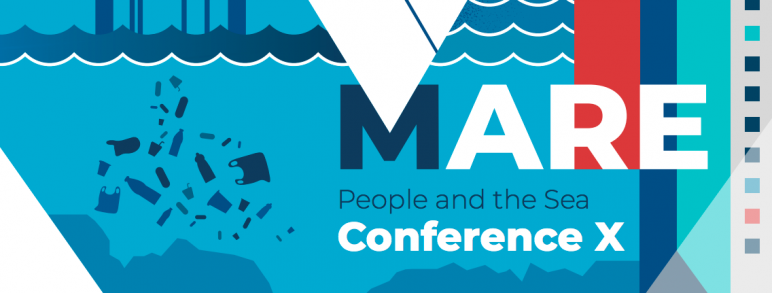Recently, the Centre for Maritime Research (MARE) held its 10th bi-annual People and the Sea Conference in Amsterdam. The theme of this year’s conference was titled “Learning from the Past, Imagining the Future”, aiming to draw on long-term perspectives and invite reflection when addressing the issues facing our coasts and seas. The conference was well attended, with nearly 400 participants arriving from around the world. Several of our own researchers were in attendance, sharing research from across the Occupational Health and Safety, Community Dynamics, and Marine Spatial Planning research sub-modules.
The ecological and societal ramifications of aquaculture – namely Atlantic salmon farming – have been the focus of some intense international debate in recent years. Concerns over social license combined with bad management and/or upkeep of farms on North America’s west coast have led to outright bans and the phasing out of farm leases. As such, the MARE “People and the Sea” conference provided an excellent opportunity for our research team to share their contributions to the field of knowledge surrounding social license and aquaculture. The theme, “Learning from the Past, Imagining the Future” spoke well to eastern Canada where a strong history of fisheries has been met in recent years with talk of aquaculture as “The Way Forward“.
Dr. Patricia Manuel was in attendance, representing the Marine Spatial Planning module and her co-authors Maggie Yet and Dr. Bertrum MacDonald in a talk titled “Framing community-based decision-making and planning for aquaculture through a participatory Marine Spatial Planning approach”
Dr. Paul Foley, of the Community Dynamics module chaired a session titled “Fisheries and Markets”, where some of his recent work titled “Access theory and marine fisheries: Integrating analyses of access to resources and to markets in the Newfoundland context”, was presented by co-author Courtenay Parlee, a post-doc of another Ocean Frontier Institute research project, Sustainable Fisheries: Informing Governance Responses in a Changing Ocean.
Paul also spoke in a session chaired by Dr. Christine Knott, another member of the Community Dynamics module. The session was, in a nod to the conference’s theme, titled “Fishy Feminists: Drawing on the past to imagine feminist futures of seas and coasts”. Paul’s paper for the session discussed “Social-ecological reproduction and the substance of life in commodity frontiers: Newfoundland fisheries in world market shifts“. Christine presented the work that she has been doing alongside Dr. Barbara Neis and Dr. Nicole Power: “Feminists theorizing fisheries: Roots and futures”.
Dr. Charles Mather – of the Societally Endorsed Aquaculture, and Community Dynamics modules – chaired another session, “Aquaculture and the Ocean Frontier”. Christine presented hers and Charlie’s work on frontiers in Canada: “Promised frontiers: Ocean economies and aquaculture in Canada” (see more on this here). Ignace Schoot also used this session to present results of his Masters research on salmon containment in aquaculture in a talk titled “The production of fishy spaces: codifying containment in Newfoundland salmonid aquaculture” (see more on this here).
Also of the Community Dynamics module, Jessica Melvin used the “Marine Pollution” session to present ongoing work done in collaboration with the Placentia Bay Ocean Debris Survey research team, titled “Towards a broader understanding of standardized methodologies in marine plastics monitoring”.
Dr. Edgar McGuiness, a post-doctoral fellow with the Occupational Health and Safety module, rounded things off with a cleverly titled talk “Salmon aquaculture: environmental protection, food safety, escape prevention, animal welfare and disease control… um … oh yeah, worker health and safety?”, introducing some of the work he and Dr. Barbara Neis have been conducting along Newfoundland’s south coast.

